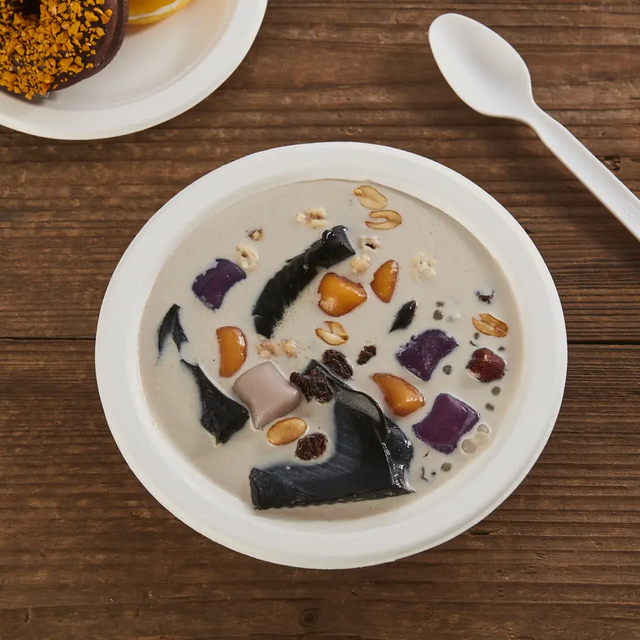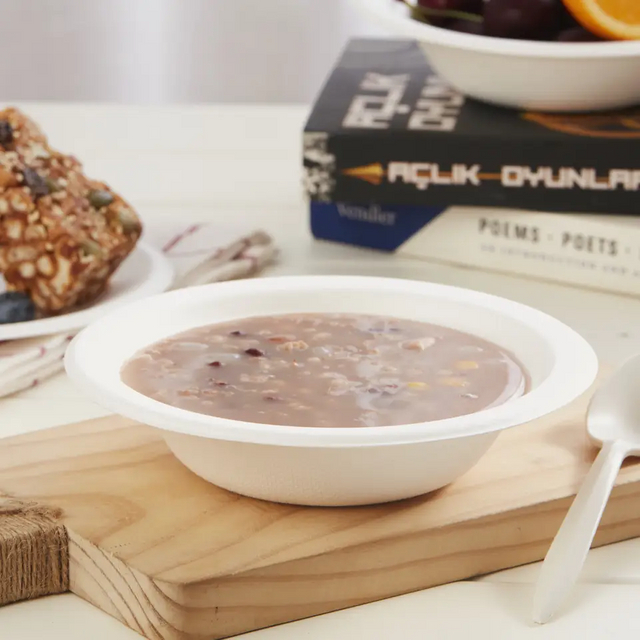+86-136-0073-8328 nancy.huang@geotegrity.com
- All
- Product Name
- Product Keyword
- Product Model
- Product Summary
- Product Description
- Multi Field Search
Views: 195 Author: Site Editor Publish Time: 2025-05-26 Origin: Site








In a world increasingly focused on sustainability, the humble bagasse bowl has emerged as a symbol of eco-conscious living. Derived from sugarcane bagasse, the fibrous residue left after extracting juice from sugarcane, these bowls represent an environmentally friendly alternative to plastic and foam packaging. With growing awareness about climate change, pollution, and single-use plastics, bagasse bowls offer a compostable, biodegradable, and renewable solution for food service and takeaway businesses.
What sets bagasse bowls apart is not just their origin, but their functionality. They are heat-resistant, leak-proof, microwave-safe, and suitable for both hot and cold dishes. Whether you’re serving soup, salad, or even pasta, a bagasse bowl with lid ensures food stays fresh and spill-free. From homes to commercial kitchens and eco-events, compostable bagasse bowls are revolutionizing the way we dine sustainably.
Bagasse bowls are crafted from the fibrous pulp that remains after sugarcane stalks are crushed for juice extraction. This byproduct, known as sugarcane bagasse, is usually discarded or burned in traditional farming methods. However, when repurposed, it becomes a valuable resource for sustainable packaging materials.
The production process of sugarcane bagasse bowls involves several steps:
Collection of sugarcane waste.
Pulping, where fibers are broken down using water and pressure.
Molding the pulp into shapes such as 12oz bagasse bowl, bagasse salad bowl, or bagasse oval bowls using high-pressure molds.
Drying and sterilization, which ensures the bowls are safe and hygienic for food contact.
This method eliminates the need for petroleum-based resources. The result is a sturdy, natural-colored product that decomposes within 60 to 90 days in commercial composting conditions. This is significantly faster than the hundreds of years required for traditional plastic containers.
1. 100% Compostable and Biodegradable
Unlike plastic or Styrofoam, which lingers in landfills for centuries, compostable bagasse bowls break down naturally. This makes them an ideal choice for eco-conscious consumers and businesses looking to reduce their environmental footprint. Whether you're using a china bagasse bowl or a bulk order of wholesale bagasse bowl products, the compostability remains consistent.
2. Heat and Liquid Resistance
Thanks to their dense fiber structure, bagasse bowls can withstand temperatures up to 200°F (93°C), making them suitable for both microwave and freezer use. They are naturally grease and cut-resistant, which adds to their practicality in serving anything from hot soup to ice cream.
3. Durable and Reliable for All Foods
From casual takeouts to formal events, bagasse plates and bowls are versatile enough to handle all types of cuisine. A 12oz bagasse bowl is perfect for a hearty serving of stew or salad, while bagasse oval bowls offer a unique presentation for main courses.

| Type | Size/Volume | Best For | Lid Option |
|---|---|---|---|
| Bagasse Salad Bowl | 16oz – 24oz | Salads, pasta, fruit | Available |
| 12oz Bagasse Bowl | 12oz | Soups, cereals, stews | Available |
| Bagasse Oval Bowls | 20oz – 30oz | Main dishes, large portions | Optional |
| Sugarcane Bagasse Bowl | 8oz – 16oz | Side dishes, rice, desserts | Available |
| Compostable Bagasse Bowls | Various | Event catering, meal prep | Yes |
These options show how versatile bowl bagasse products can be. Whether you're in catering, running a food truck, or hosting a large-scale eco-friendly event, there's a size and shape to fit every need.
With increasing government restrictions on single-use plastics and a surge in consumer demand for green alternatives, businesses are turning to sugarcane bagasse bowls to stay ahead of the curve. Here are some reasons:
Eco-branding: Using bagasse bowls shows customers that your business prioritizes sustainability.
Cost-effective wholesale options: Thanks to wholesale bagasse bowl suppliers, prices are becoming more competitive.
Positive customer perception: Eco-conscious diners are more likely to return to a restaurant that reflects their values.
Compliance with regulations: Many local governments encourage or mandate the use of compostable packaging.
This shift isn't just about following trends—it's a commitment to a cleaner, greener planet. Businesses that embrace bagasse plates and bowls today are positioning themselves as future-ready leaders in their industry.
Q1. Are bagasse bowls microwave-safe?
Yes. All bagasse bowls, including sugarcane bagasse bowls, are microwave and freezer safe. They can tolerate hot foods and liquids without melting or deforming.
Q2. Do bagasse bowls require special composting?
While they decompose faster in commercial composting facilities, compostable bagasse bowls can still break down in home compost bins under the right conditions.
Q3. Are bagasse bowls better than plastic or paper?
Absolutely. Unlike plastic, they are made from renewable resources and don't release harmful chemicals when broken down. Compared to paper, they require less water and energy to produce.
Q4. Can bagasse bowls be customized for branding?
Yes. Many china bagasse bowl manufacturers offer customization options like embossing or eco-friendly printing.
Q5. How long does it take for a bagasse bowl to decompose?
In a commercial composting environment, it usually takes 60–90 days. In natural conditions, it may take a bit longer but still far less than plastic.

If you're considering a switch to eco-friendly packaging, buying wholesale bagasse bowls can save both money and the environment. Here's what to look for when choosing a supplier:
Certifications: Look for compostable certifications (like ASTM D6400, EN13432).
Product Range: A good supplier should offer a variety of shapes and sizes such as bagasse salad bowls, 12oz bagasse bowls, or bagasse bowl with lid.
Bulk Pricing: Ensure that bowl bagasse options are available at competitive wholesale rates.
Delivery and Lead Time: Choose a partner who can deliver consistently and on time, especially if you’re operating a food service business.
With the right supplier, you can confidently offer your customers packaging that aligns with a sustainable future.